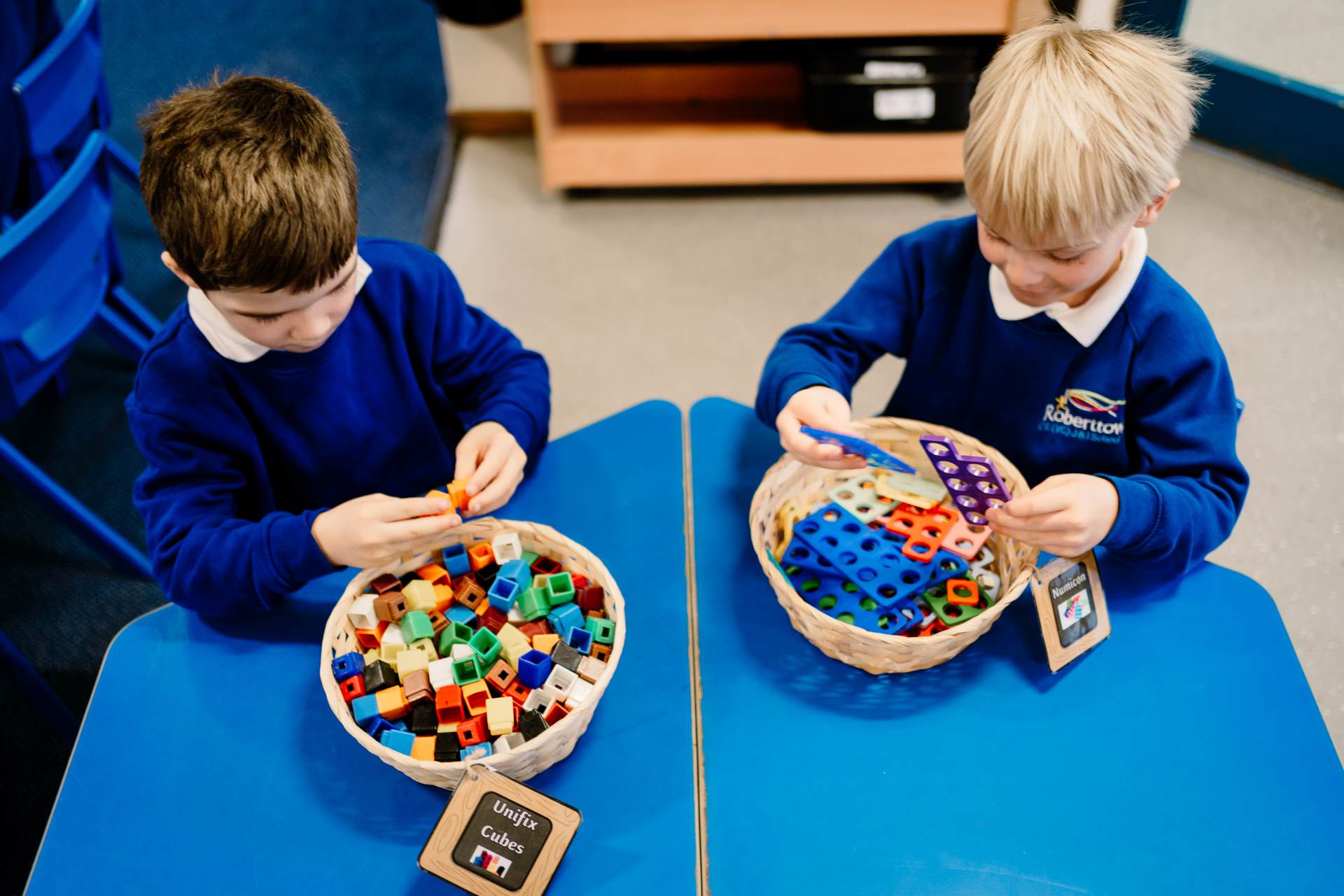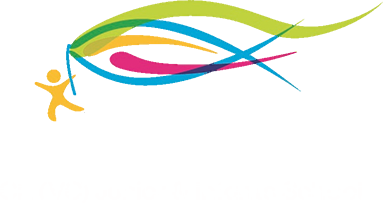Maths

Intent: Our Subject Vision
At Roberttown School, we believe that all children can become mathematicians: Maths should be a dynamic interactive subject, which generates discussion and mathematical thinking. We want our children to enjoy their maths learning and have the confidence to have a go at whatever challenge they are faced with. We want them to understand the relevance of mathematics to their lives today. Mathematics classrooms should not be silent classrooms - children need to be able to discuss and articulate their thinking. Classrooms should have a buzz about them – a buzz of enthusiasm and learning.
To this end, at Roberttown, we have adopted a Mastery approach to mathematics. This enables us to deliver the three aims of the National Curriculum: fluency, reasoning and problem solving, in a way that is inclusive for all children. Underpinning this is the belief that all children can achieve in mathematics. We believe in promoting sustained and deepening understanding by employing a variety of mastery strategies, with the teaching of conceptual understanding at the heart of everything we do.
Our aim is to equip our children with the skills necessary to access the curriculum, be that in the Early Years Foundation Stage or Upper Key Stage 2 where we work to prepare them for the secondary curriculum. We endeavour to create independent and confident mathematicians who are well equipped to apply their learning and understanding in the wider world.

Implementation:
Our Approach
From Year 1 to Year 6 Maths is taught by the class teacher using the National Curriculum programme of study as our guidelines. In Reception Development matters and the Early Learning Goals are used to develop the children’s mathematics with White Rose Maths being used as a guide and a tool. We organise our teaching sequence by using the White Rose Medium Term Plans and adapting these to suit the needs of our children and school. This may be supplemented by material from other sources.
Key features of our teaching include:
- High expectations that all children can achieve
- Use of manipulatives and pictures to consolidate understanding (Eg: numicon, Dienes, Part-Part-Whole,)
- Reasoning and problem solving able to accessed by all children
- Number sense, multiplication tables and place value prioritised
- Daily fluency sessions applicable to children’s learning
- A high focus on the multiplication and division tables
- Use of variation in teaching concepts
- Accurate use of mathematical language and speaking in full sentences.
Bar modelling is used as a heuristic to develop children’s understanding
From Year 1, Children across the school are taught mathematics for 1 hour each day. This includes daily flash backs and in KS2 daily multiplication tables. In order to develop the children’s accurate recall of the multiplication tables, the school has adopted the use of TT Rockstars in KS2. All children in KS2 have logins to this and are encouraged to work on this at home too. We also use chanting, flash cards, TopMarks Daily 10 www.topmarks.co.uk , squashy boxes and the use of triples to develop this understanding. KS1 use finger counting techniques to learn their 2, 5 and 10 times tables. From the start of the Spring term, children in Year 2 will be given their own TT Rockstars logins and will begin to use it in a similar way to Key Stage Two. The children in EYFS are taught Maths daily and access small group sessions and have access to high quality mathematical provision during their independent time. Emphasis is placed on number, ensuring children have a full understanding of the number before moving on. Children in EYFS also have experience of measure, shape and pattern. The accurate use of mathematical language is vital whatever the age of the child.
Further Information


